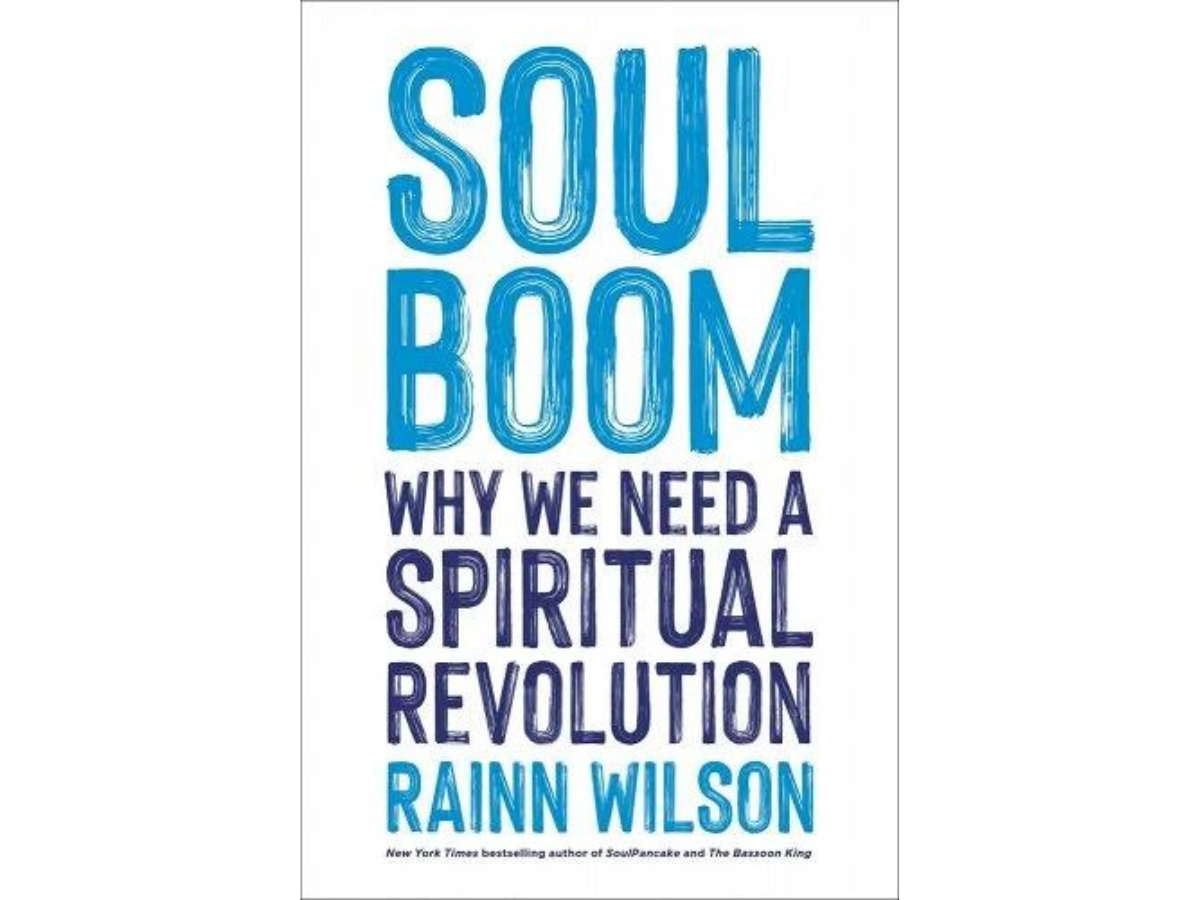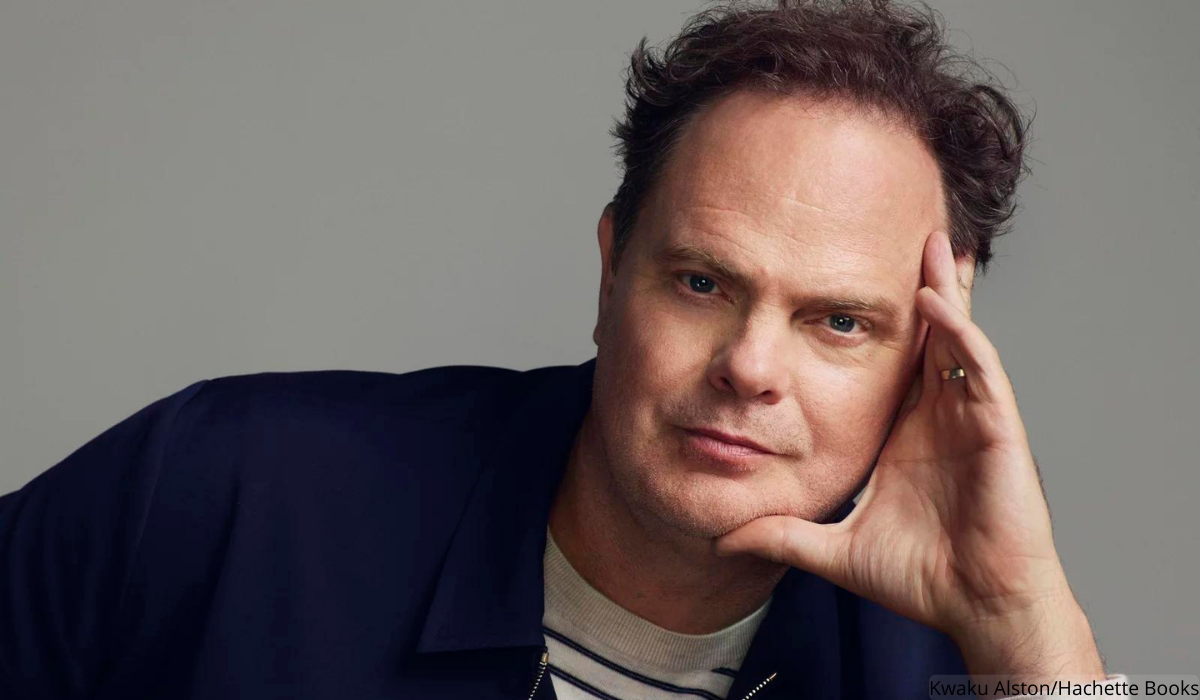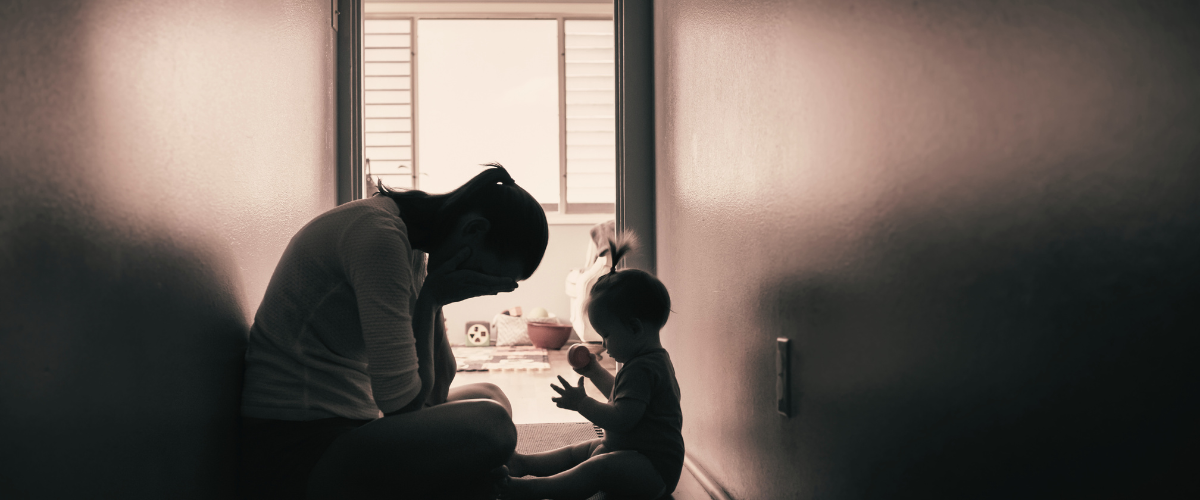Rainn Wilson Says We’re in Need of a Spiritual Revolution—and We Can Start by Doing This One Small Thing
In his new book, Soul Boom: Why We Need a Spiritual Revolution, author and actor Rainn Wilson covers "Some really light material: pandemics, death, God, religion, holiness, consciousness, suffering, social transformation, and the meaning of life. That's about it."
Employing his self-deprecating humor, Wilson, who is widely known for playing the inimitable character Dwight in 'The Office, ' is serious in his writing on such grave topics, and he does so with urgency and compassion. So why the compulsion? As the title suggests, Wilson is fascinated by seeking spiritual answers and solutions to the world’s greatest problems. He sheds light on the non-material things deep inside us that make us human. "All that gooey, profound stuff that is so easy to sneer at and dismiss in our cynical, fast-paced, modern world," he writes.
Alas, Wilson knows this is a challenging feat. But his eagerness to ask "big questions" makes his new book (and new series) compelling. Funny, open, and warm, Wilson spoke with The Sunday Paper by phone to explore some of these big questions—and more.
“I'm not an expert on any of these things,” he tells us. “I just want to start a big conversation and go deeper than just politics.”
A CONVERSATION WITH RAINN WILSON
You believe that Spirituality can mean many things to many people. What does Spirituality mean to you?
It's important to differentiate between religion and Spirituality. I'm always surprised by how many people equate them as being synonymous. I'm a huge fan of religions, as I reveal later in the book's journey, but it's important to define our terms.
Separating it from church, for some people, Spirituality can mean a vague feeling of peace and connectedness that they get in a yoga class. But that's not what I'm talking about. The dictionary definition of Spirituality is what I mean: paying attention to the non-material aspects of being alive. Sometimes I phrase it as Spirituality is being concerned with anything a monkey can't do. Monkeys can procreate and eat, and they have social pecking orders. And occasionally, they throw their poop—that will be the first time in Maria Shriver's [Sunday Paper] newsletter that someone talks about poop-throwing! So what is left over when we're not concerned about the material aspects of being alive? Well, it's emotion and our hearts. It's creativity, seeking transcendence, sacredness, holiness, and whatever our souls are. It's the qualities of the Divine that we nurture in our hearts. It's all those spiritual virtues that Jesus Christ and the Buddha so effortlessly manifested: kindness, compassion, humility, honesty, openness, joy, and tranquility. When you put that all together under an umbrella, that's what I'm talking about when I talk about Spirituality.
When we hear the word Spirituality, it may cause some of us to feel the need to be perfect or do things perfectly to tap our spiritual side. But you say that's not the case. How do we get in our way?
That's a great question. There's a book I read a long time ago that I was quite moved by called The Spirituality of Imperfection. I love the title and the thesis that the authors dug into, which is the idea that we're on a spiritual journey and we're flawed. We're delightful, loving, and lovable but also flawed creatures, and that's okay. God could have made the world and put 8 billion perfect angels on it, but that's not what the spiritual journey is about. It's a journey of imperfection.
My favorite spiritual quote is from Father Pierre Teilhard de Chardin. He said, "We're not human beings having a spiritual experience. We are spiritual beings having a human experience." So, being a spiritual being having a human experience is an experience of flaws, struggles, and imperfections. And that's glorious and what it's all about! We struggle, suffer, have setbacks and character defects, and are also luminous and have joy and radiance and seek meaning and love. So yes, the spiritual journey is not to embrace any kind of perfection. It's about living in our humanness, which is spiritual wholeness.
Why are we in need of a spiritual revolution?
People ask me, 'Why did you write this book?' Why is the guy, Dwight, writing this book? I've talked a lot about growing up a member of the Baháʼí Faith and about my mental health journey. One of the greatest reasons I wrote this book is that I'm fascinated by spiritual answers and solutions for the world's problems—and of the greatest problems right now is the mental health epidemic among young people. We've jettisoned conversations about religion and Spirituality in the big-city Western world, which has then jettisoned many potential solutions to this devastating issue.
I write about a "plethora of pandemics": climate change, racism, income inequality. When you dig into existing contemporary systems of how Americans do everything, we have built unsustainable systems based on the very worst of humanity. Going back to the monkeys, I'm talking about the worst qualities of the animal aspects of humanity, from the seeking of power to every man for himself. It's important for me to say that animals are beautiful and awesome. We could learn a lot from them. But I'm saying that if we build up our systems based on adversarial and survival of the fittest qualities, they are unsustainable. We need to look at spiritual solutions for how we do everything. Take, for instance, health care. Everyone admits that the healthcare system is broken, and we don't do anything about it. We may pass some programs and have some policy changes. But that is all putting a Band-Aid on a cancer, and the cancer is the essential nature of the brokenness of the healthcare system itself because healthcare should exist to heal everyone.
We must engage in much deeper and more far-reaching discussions about spiritually-based solutions to these broken systems. This is easier said than done. It is extremely difficult and means a complete recalibration of how we do almost everything. But it's so important because we keep putting Band-Aids on broken systems, and we're not talking about why they're broken in the first place.
When we see something unjust, we tend to shout about it, shake our fists, and tweet about it. In doing this, sometimes, we acknowledge that the system is broken, but no one's building something new to replace it. I keep a quote from Buckminster Fuller on my desk: "You never change things by fighting the existing reality. To change something, build a new model that makes the existing model obsolete." So we keep fighting the existing reality without building new models. And if we build new models, they need to be based on spiritual concepts like compassion, community, and cooperation. Human history is filled with stories of people coming together, cooperating, and being compassionate. We can continue that work.
You have openly talked about hardships you've experienced, from addiction to anxiety and depression to grave loss. At the start of one chapter, you talk about your father's death a few years ago. What do you believe life can teach us about death?
We're not embracing life if we're not embracing death. You can't understand the light if you don't look at the darkness. We are all going to die. Humanity has been in an ongoing discussion about death for tens of thousands, since as long as before recorded history, yet we don't anymore. We've stopped talking about it in the last 100 years.
We can learn and appreciate so much about being alive by looking at death. It's the ultimate framing device. And when you look at it from that point of view, of a spiritual journey, that allows us to savor the journey ever more deeply. When I witnessed my father's body in the hospital and as we were preparing it for burial, it was clear to me that it was his vessel that carried his incredible, beautiful spirit. That body is not my father. And I've talked to hundreds and hundreds of people who have had that same experience when they've witnessed a dead body of a loved one: that body was the vessel, the meat suit, that carried the beautiful divine spark of that person through their life. And the journey continues. In every religious tradition, the journey continues in some way, shape, or form. Every faith community underlines the beauty and importance of understanding life after death and the continuation of the soul experience.
How can we begin to build on their own spiritual revolution? Where is a good place to start?
I talk about this in terms of Star Trek and Kung Fu in my book: We have the contemplative life— the inner spiritual journey—that we're each taking, and we have humanity's spiritual journey that all of humanity is taking. We live in this spiritual dance between those two forces.
Starting small and simple can be a daily meditation practice of five to 10 minutes, allowing time for reflection, contemplation, curiosity, wonder, gratitude, and a heart-swelling embrace of the mystery of being alive. And then, doing something very small to make the world better: Be of service in some way, shape, or form to a sick friend, to a struggling relative, to a place in your community that could use a little help. So this is a turning inward where we reflect and charge those spiritual batteries, and then we take that energy, go out, be of service, and give to someone else. It might sound daunting, but it can just be five or 10 minutes of meditation. And it can just be one act of random kindness. Just start there.
Part two is to read a bit about the world's great spiritual teachers, even a couple sentences a day. It can be the Bible. It can be the Dhammapada of the Buddha. It can be contemporary spiritual teachers like the Dalai Lama, Thich Nat Hanh, or Eckhart Tolle if that floats your boat more. But reading just a couple of sentences can redirect a perspective shift.

Rainn Wilson is a three-time Emmy nominated actor, writer, and producer. He is the co-founder of the media company SoulPancake and host of Rainn Wilson and the Geography of Bliss on Peacock, which you can watch here. Wilson is the author of The Bassoon King: My Life in Art, Faith, and Idiocy, as well as the coauthor of SoulPancake: Chew on Life’s Big Questions. His new book is Soul Boom: Why We Need a Spiritual Revolution.




